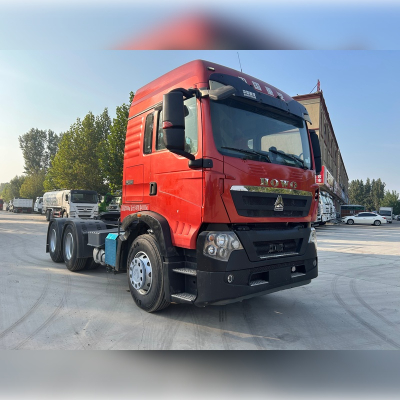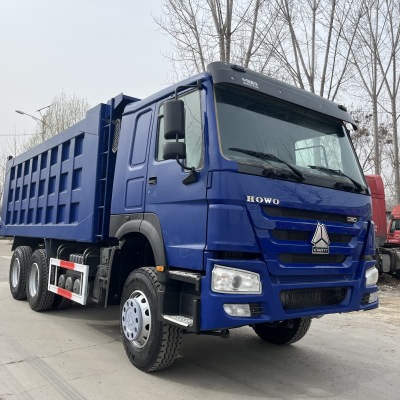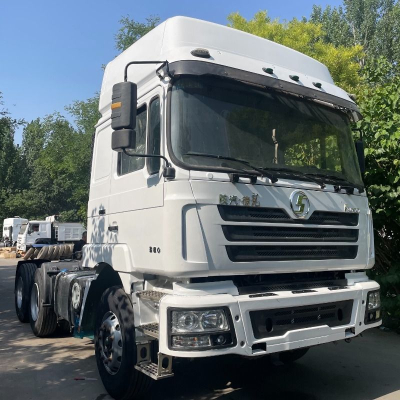Why Africa Is Shifting from European Trucks to HOWO
Why Africa Is Shifting Away from European Trucks to HOWO
For several decades, the commercial vehicle market in Africa was dominated by European trucks. Brands such as Mercedes-Benz, Volvo, and Scania were considered the benchmark—names synonymous with power, strength, and prestige. However, over recent years, a dramatic shift has taken place. From congested Nigerian ports to remote Zambian mines, fleet operators, contractors, and logistics providers across Africa are increasingly choosing HOWO trucks over their European counterparts.
This shift is not accidental. It is the result of six decisive factors that together redefine the African transport and heavy-haulage market. By exploring these six pillars—price advantage with quality, higher profits, maintenance solutions, flexibility in surviving hard conditions, brand image, and Sino-African cooperation—we can understand why HOWO has become the first choice of a new generation of African firms.
1. Price Advantage with Quality Assurance
The most apparent contrast between HOWO and European trucks lies in cost. A brand-new European truck can cost nearly double or even triple the price of an equivalent HOWO vehicle.
For many African businesses—especially those operating in tightly margined industries such as construction, mining, or regional haulage—this cost difference is decisive.
Low price, however, does not mean low quality. Modern HOWO trucks combine advanced Chinese engineering with robust designs tailored for developing economies. They are capable of towing heavy loads, enduring long years of operation, and surviving sub-optimal road and fuel conditions.
Fleet managers who previously resisted are now convinced that HOWO provides the ideal combination: affordable acquisition with consistent performance.
2. Widened Profit Margins
Every business in Africa seeks profitability, and trucks are not merely vehicles—they are revenue-generating assets.
Investing in HOWO allows companies to unlock higher profit margins in two main ways:
Lower initial investment: The reduced purchase price allows companies to acquire more units for the same budget, effectively doubling operational capacity.
Faster return on investment (ROI): Lower overheads mean the payback period for a HOWO truck is shorter than for most European models.
Consider a logistics company in Kenya: with the cost of one European truck, they can afford nearly two HOWO trucks, doubling fleet capacity. More capacity translates into more contracts, more deliveries, and thus more revenue. For African entrepreneurs, HOWO is not just a vehicle—it is a tool for growth and market expansion.
3. Maintenance and After-Sales Services
Maintenance is often the underappreciated expense of truck operation.
With European trucks, spare parts are expensive and hard to source locally. Breakdowns can leave vehicles inactive for weeks, awaiting imported components. Each day of downtime translates into lost revenue.
HOWO, however, has strategically established a service and parts network across Africa. From Nigeria to Ethiopia, authorized service centers and dealers are readily available. Locally stocked parts, competitive pricing, and rapid repair capabilities ensure trucks spend more time on the road and less time in workshops.
For fleet owners, downtime is as critical to minimize as initial purchase costs. Both are achievable with HOWO.
4. Adaptability to Harsh African Conditions
African roads are challenging: potholes, dirt tracks, dusty environments, and extreme heat test vehicles daily.
European trucks, while technologically advanced, are often designed for smooth highways and strict maintenance schedules. They require high-quality fuel and precise servicing.
HOWO trucks are built with rugged utility in mind—reinforced chassis, simpler systems, and engines capable of running on lower-quality fuel. Whether transporting construction materials along muddy village roads or hauling ore across deserts, HOWO trucks demonstrate reliability and resilience.
This versatility is a key reason mining companies, agricultural cooperatives, and construction firms increasingly prefer HOWO as their fleet solution.
5. Shift in Brand Perception
Ten years ago, many African buyers perceived Chinese trucks as inferior. European trucks were the only acceptable choice.
With the rising popularity of HOWO, customer perception has dramatically shifted. Fleet managers who have operated HOWO for years report high satisfaction. Drivers appreciate reliability and comfort; owners value operating cost savings.
As success stories spread—whether in Ghana’s construction sector or South Africa’s logistics market—the image of HOWO has evolved from “budget choice” to “smart business choice.”
Today, seeing fleets of HOWO trucks on African roads is the norm. The brand has earned acceptance as a dependable partner for businesses of all sizes.
6. China-Africa Cooperation Support
The macroeconomic context is equally important. The partnership between China and Africa has strengthened over the past two decades.
From infrastructure improvement to trade facilitation, Chinese governments and enterprises have heavily invested in African development.
As part of this cooperation, funding opportunities for HOWO trucks have become more accessible. Flexible payment plans, low-interest loans, and lease-to-own options allow African businesses to expand fleets without straining cash flow.
Chinese investment in large infrastructure programs also generates direct demand for HOWO trucks, reinforcing their presence across the continent. The synergy between HOWO as a brand and the broader China-Africa collaboration ensures this trend is structural, not temporary.
7. Conclusion: The Future
The dominance of HOWO in Africa is no fleeting trend. It stems from tangible advantages: better price-to-quality ratio, stronger profit potential, convenient maintenance, rugged versatility, improved brand reputation, and supportive global cooperation.
For African enterprises, choosing HOWO is more than a cost-saving measure—it is a strategic decision aligned with long-term growth plans.
As the continent continues to build roads, expand cities, and develop industries, HOWO trucks will remain central to progress.
HOWO is not just replacing European trucks in Africa—it is redefining success in the commercial vehicle market.
The message is clear: with HOWO, African companies drive further, earn more, and build stronger futures.













